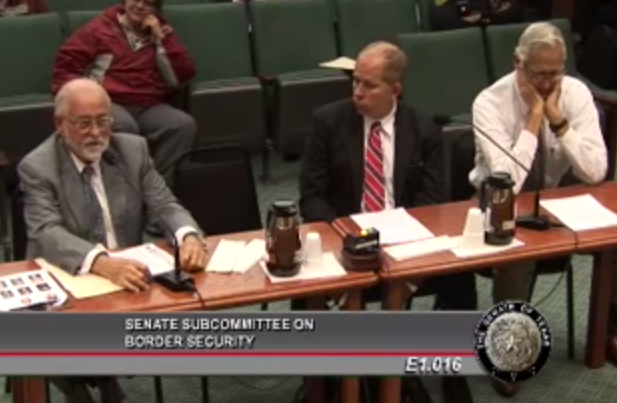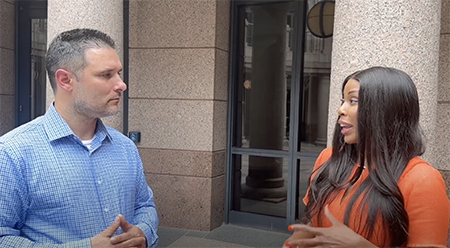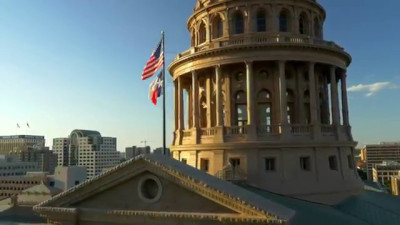Texas Lawmakers Consider Legislation Harmful to the Texas Economy
 In a state considered by others around the country to be the Economic Shining City on a Hill, it is almost unimaginable that lawmakers would give serious consideration to proposals that threaten to undermine that vitality. But, that is exactly what is happening as they weigh whether to pass a ban on so-called "sanctuary cities.”
In a state considered by others around the country to be the Economic Shining City on a Hill, it is almost unimaginable that lawmakers would give serious consideration to proposals that threaten to undermine that vitality. But, that is exactly what is happening as they weigh whether to pass a ban on so-called "sanctuary cities.”
What the proposal would do is prohibit local law enforcement from telling their officers they are not allowed to enforce federal immigration laws. At a recent hearing of the Texas Senate's Subcommittee on Border Security, business and faith leaders joined together to oppose the bill by Sen. Charles Perry, R-Lubbock, that would impose several unfunded mandates on cities and counties while putting employers in a no-win scenario.
Robert Lofgren with the Greater Houston Partnership – the largest business group in Southeast Texas and one of the largest in the state – told the committee that the Gulf Coast and state economies are largely dependent on the labor of both documented and undocumented immigrants. That's the primary reason the Partnership has advocated for years in Washington in favor of comprehensive immigration reform.
At the state level, Lofgren said policymakers must be careful to avoid passing bills that might put Texas under the same kind of scrutiny faced by Arizona when lawmakers there passed a harsh crackdown on unauthorized immigrants. There is also a risk to public safety if people in immigrant communities are fearful of law enforcement, Lofgren said. He said prosecutors often have to make the horrible choice of letting a violent criminal off the hook because an immigrant victim will not testify in court. “If you cannot get that complaining witness, the DA will actually drop the case,” Lofgren said.
Lofgren said the long held conservative value of local control seems to be under assault at the Texas Capitol.
“Ronald Reagan would turn over in his grave that we are having a bill proposed out of Lubbock, which may be passed by this committee, that is telling Harris County or Houston what it can or cannot do,” Lofgren said.
Citing testimony that had been given previously before the committee, he said policies that work in certain parts of the state may not be the right fit in other parts. “Here we have a situation where the state is telling municipalities what to do,” Lofgren said.
The Texas Association of Business, the chamber of commerce for the state, has sent a letter to senators asking them to oppose Perry's proposal. On behalf of 4,000 employers, the group said the ban on "sanctuary cities" would reduce the labor supply in industries like construction, hospitality, and agriculture.
"Economic activity in general will be negatively impacted. People will be less likely to travel, stay in motels and hotels, and dine-out in restaurants," the association said. The group also said that even though the legislation is not worded exactly the same way the Arizona law was structured, it will have many of the same negative economic results. "Others will perceive it to be the same, and our tourism industry will be harmed because of it," the group said.
Norman Adams, a Houston insurance agent who represents many employers in his role with Texans for Sensible Immigration Policy, told the panel that the main reason the state is considering any action is because Washington hasn’t acted in the midst of a crisis. "We can't get Congress to address the issue," Adams said. "They don't want to talk about it. It's their responsibility.”
Saying that at least 50 percent of commercial construction workers in Texas are undocumented, Adams said employers face an impossible choice on a daily basis. “Most of them have been hired legally because our system is broken," he said.
If a person is otherwise qualified and presents documents that appear to be legitimate, the company could find itself under fire by the federal government if the person is not hired, Adams said.
"For you to turn them down and not hire them because you suspect they're illegal is a clear violation of the law,” Adams said. “It is discrimination to do that and the EEOC (the federal Equal Employment Opportunity Commission) will come after you," Adams said.
The unfunded mandates in the bill and the opposition from law enforcement should make the idea a non-starter, Adams said. "We Republicans ought to reject it from the word go," he said. Indeed, police chiefs and sheriffs around the state have said anti-immigrant legislation will encourage abusive (and illegal) profiling and will hurt, not help, law enforcement efforts in Hispanic neighborhoods.
Adams argued that the worst part of the bill is that it requires the Texas Attorney General to review each complaint and file a petition. "Can you even imagine the red tape and wasted time and expense?” Adams asked. “Talk about a nightmare.”
The subcommittee has not voted on the legislation. It could be back before the panel for consideration as soon as next week.







